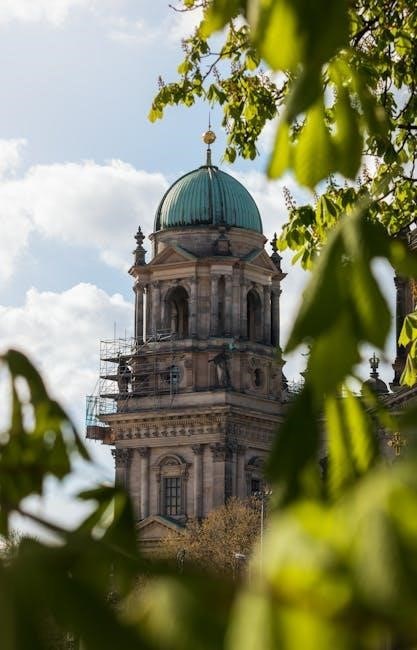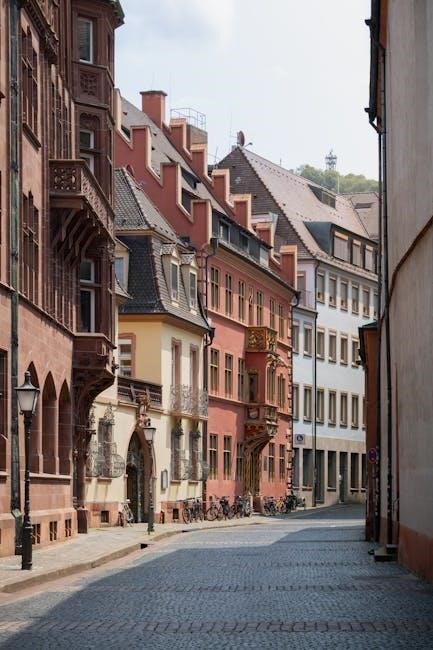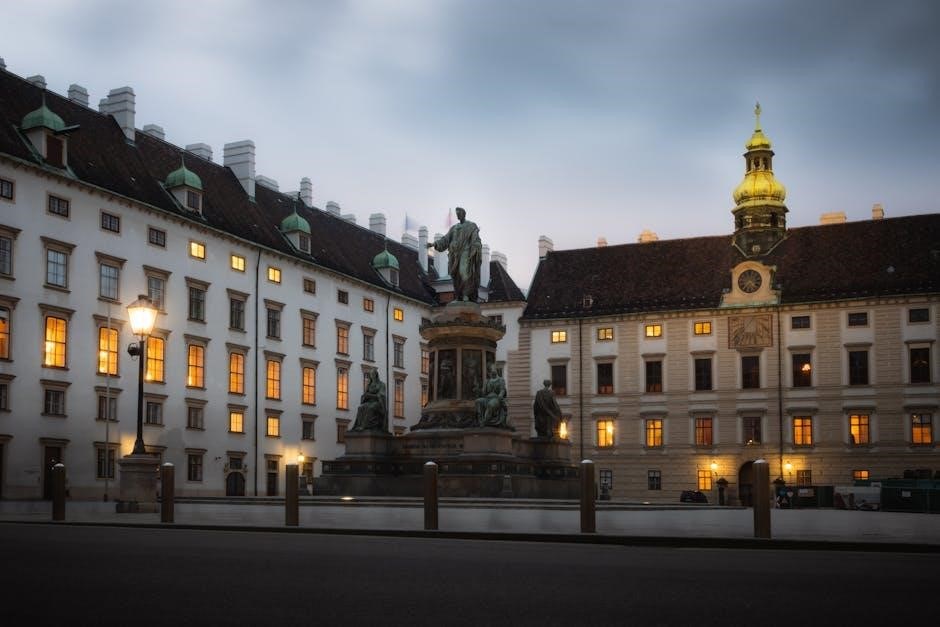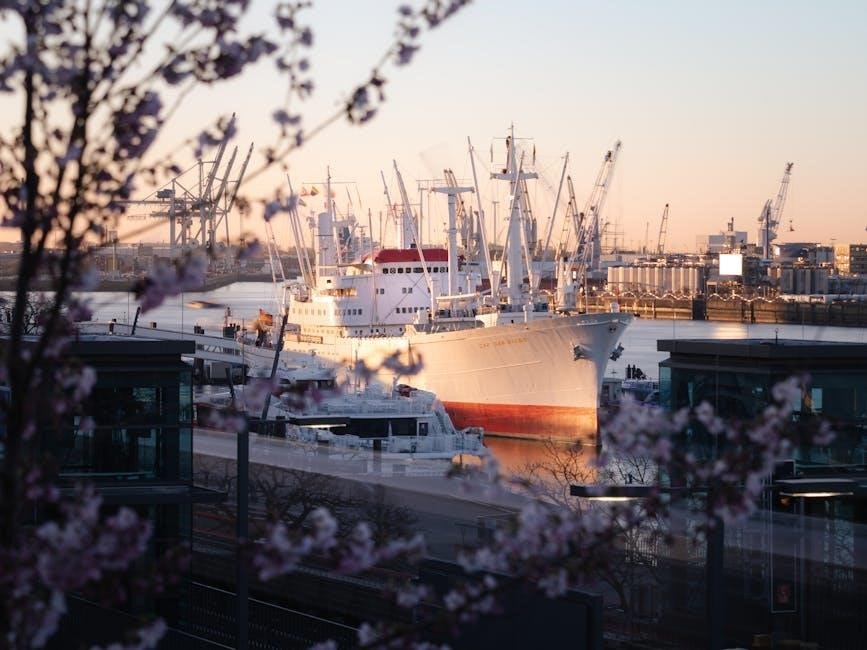The Straight Detroit: America’s Premier Legacy City is a meticulously curated anthology offering insights into Detroit’s resilience, cultural significance, and transformation. This book explores the city’s history, racial dynamics, and economic revival, providing a comprehensive understanding of its legacy and future. With expert perspectives, it serves as a vital resource for grasping Detroit’s multifaceted identity and its enduring impact on American history and culture.
Overview of Detroit as a Legacy City

Detroit, often hailed as America’s Premier Legacy City, embodies a unique blend of historical significance and modern resurgence. Once a powerhouse of the automotive industry, the city has weathered economic storms and cultural shifts, emerging as a symbol of resilience. Its legacy is rooted in innovation, from the assembly lines of the past to the vibrant arts and cultural scenes of today. As a Legacy City, Detroit balances its industrial heritage with forward-thinking initiatives, making it a cornerstone of American identity and a beacon of urban transformation.
The Significance of the Book Title
The Straight Detroit: America’s Premier Legacy City captures the essence of Detroit’s journey from industrial titan to a city of resilience and reinvention. The title reflects Detroit’s dual identity as a place steeped in history yet embracing modern transformation. The term “Legacy City” underscores its enduring impact on American culture, economy, and society. By calling it “Premier,” the title highlights Detroit’s significance as a model for urban revival and innovation. This anthology serves as a gateway to understanding the city’s complexities, offering a multifaceted exploration of its past, present, and future.

Historical Context of Detroit
The Straight Detroit traces the city’s origins, from its founding by French settlers in 1701 to its pivotal role as a frontier outpost and industrial hub, shaped by Native American influences and strategic geography, laying the foundation for its rise as a cornerstone of American history and culture.
The Early Settlers and Native American Influence
The Straight Detroit delves into the city’s origins, highlighting the arrival of French settlers in 1701 and the significant role of Native American tribes like the Huron and Ottawa. These indigenous communities shaped the region’s early history through trade and cultural exchanges. The settlers’ survival and adaptation were deeply influenced by Native American knowledge of the land and resources. This period laid the foundation for Detroit’s strategic importance as a frontier outpost, blending French colonial ambitions with Native American traditions. The interplay between these groups set the stage for the city’s future growth and cultural identity.
Detroit’s Role in the Automotive Industry
Detroit is renowned as the birthplace of the American automotive industry, with Henry Ford pioneering the assembly line in 1913. This innovation revolutionized manufacturing, making cars affordable for the masses. The city became home to the “Big Three” automakers—Ford, General Motors, and Chrysler—solidifying its status as the automotive capital. The industry transformed Detroit’s economy, attracting workers nationwide and fostering a thriving middle class. However, challenges like globalization and automation later impacted the sector. Despite these shifts, Detroit’s legacy as a hub of innovation and manufacturing remains central to its identity and America’s industrial history.

Economic and Social Resurgence
Detroit has emerged from significant challenges, showcasing resilience through innovative initiatives and community-driven revitalization efforts, marking a promising era of economic and social recovery.
The Decline and Revival of Detroit’s Economy
Detroit’s economy faced significant decline due to the automotive industry’s downturn and population loss. However, the city is experiencing a revival through innovative initiatives and urban renewal projects. Efforts to diversify the economy, invest in technology, and promote sustainability are fostering growth. The resurgence is marked by new industries, entrepreneurial spirit, and community-driven development, showcasing Detroit’s resilience and potential for a vibrant future.
Urban Renewal and Modern-Day Initiatives
Detroit’s urban renewal efforts are transforming the city through innovative projects and partnerships. Public-private collaborations are revitalizing neighborhoods, with investments in infrastructure, housing, and green spaces. Initiatives like the Detroit Future City plan aim to create sustainable, inclusive growth. Modern developments, such as the QLine streetcar and riverfront revitalization, are enhancing connectivity and quality of life. Additionally, programs focused on affordable housing and community engagement are fostering equity. These efforts reflect Detroit’s commitment to rebuilding and ensuring a vibrant, resilient future for all residents.

Racial and Social Dynamics
Racial and social dynamics in Detroit reflect historical tensions and community efforts toward progress. The city’s legacy includes challenges of racial divide and initiatives fostering unity and equity.
Racial Tensions and Their Impact on the City
Racial tensions have deeply shaped Detroit’s history, influencing its social and economic landscapes. The city’s legacy of segregation and discrimination has led to persistent divides, with events like the 1967 riots highlighting these fractures. Historical segregation in housing and employment exacerbated racial disparities, contributing to population decline and economic challenges. These tensions underscore the city’s complex identity, reflecting broader American struggles with race and inequality. Understanding Detroit’s racial dynamics is crucial for grasping its resilience and the ongoing efforts to address these systemic issues.
Community Efforts and Social Progress
Detroit’s resurgence is fueled by vibrant community efforts and a commitment to social progress. Grassroots initiatives, collaborative projects, and innovative programs are transforming neighborhoods, fostering inclusivity, and rebuilding trust. Organizations and residents alike are addressing systemic issues through education, arts, and economic empowerment. These efforts highlight the city’s resilience and its determination to create a more equitable future. By amplifying diverse voices and promoting unity, Detroit is reclaiming its identity as a city of hope and collective progress, setting a blueprint for other urban areas to follow.

Cultural Significance of Detroit
The Straight Detroit highlights Detroit’s role as a cultural hub, from Motown music to automotive innovation, shaping America’s artistic and industrial identity.
The City’s Contribution to Arts and Culture
Detroit has profoundly shaped America’s cultural landscape, particularly through its iconic Motown music, which revolutionized the music industry. The city’s vibrant arts scene, from jazz to public murals, reflects its resilience and creativity. The Straight Detroit anthology highlights how Detroit’s cultural contributions, including its influential music festivals and dynamic art movements, have left an indelible mark on American identity. The city’s rich history and modern initiatives continue to inspire artists and cultural enthusiasts, cementing its legacy as a hub for innovation and expression.

Detroit’s Identity in American History

Detroit holds a unique place in American history as a city of innovation and resilience. Founded in 1701, it grew into a strategic hub during the French and Indian War. The 20th century cemented its identity as “The Motor City,” leading the automotive revolution. Detroit’s influence extends beyond industry; it is a symbol of American progress and perseverance. The city’s history reflects the nation’s industrial rise and its ability to adapt, making it a cornerstone of American heritage. The Straight Detroit anthology explores this identity, showcasing how the city’s past shapes its enduring relevance in American history and culture.

The Book as a Resource
The Straight Detroit: America’s Premier Legacy City serves as a vital resource, offering diverse perspectives on Detroit’s history, economy, and culture through meticulously curated essays and expert insights.
Perspectives and Insights from the Anthology
The Straight Detroit: America’s Premier Legacy City offers a multifaceted exploration of Detroit’s history, culture, and social dynamics through a collection of expertly curated essays. The anthology provides in-depth analysis of the city’s transformation, from its early settlers and Native American influences to its pivotal role in the automotive industry. Contributors shed light on racial tensions, economic challenges, and modern renewal efforts, presenting a nuanced understanding of Detroit’s complexities. This resource is essential for anyone seeking to grasp the interconnected themes that define the city’s legacy and its path forward.
Why This Book is a Valuable Resource
The Straight Detroit: America’s Premier Legacy City stands out as an indispensable resource for understanding Detroit’s multifaceted history and modern transformation. By compiling diverse perspectives from experts, the anthology provides a comprehensive exploration of the city’s cultural, economic, and social dynamics. Its in-depth analysis of Detroit’s challenges and resilience makes it a vital tool for scholars, policymakers, and enthusiasts alike. The book’s curated insights offer a unique lens through which to view Detroit’s legacy, making it an essential read for anyone seeking to grasp the city’s significance in American history and its potential for future growth.

Legacy and Future Outlook
Detroit’s legacy as a premier city is rooted in its resilience and innovation, shaping America’s history. Its future outlook promises revitalization and continued relevance through community-driven initiatives and cultural rebirth.
Detroit’s Legacy as a Premier City
Detroit’s legacy as a premier city is deeply rooted in its historical significance as the automotive capital of America. Once a bustling industrial powerhouse, Detroit shaped the nation’s manufacturing landscape and cultural identity. Its resilience in the face of challenges has cemented its reputation as a beacon of innovation and perseverance. The city’s contributions to music, arts, and civil rights further highlight its enduring impact on American history. As a legacy city, Detroit’s story is one of transformative power, influencing generations and inspiring future progress. Its rich heritage continues to resonate, making it a cornerstone of American identity and pride.
FUTURE Outlook and Continued Relevance
Detroit’s future outlook is marked by a promising resurgence, driven by innovation, sustainability, and community-driven initiatives. The city is emerging as a model for urban rebirth, with investments in clean energy, smart infrastructure, and cultural preservation. Its legacy as a premier city ensures continued relevance, as Detroit evolves into a hub for tech and green industries. By embracing its rich history while fostering modern progress, Detroit is poised to remain a vital contributor to America’s economic and cultural landscape, inspiring future generations with its resilience and determination.




Leave a Reply
You must be logged in to post a comment.